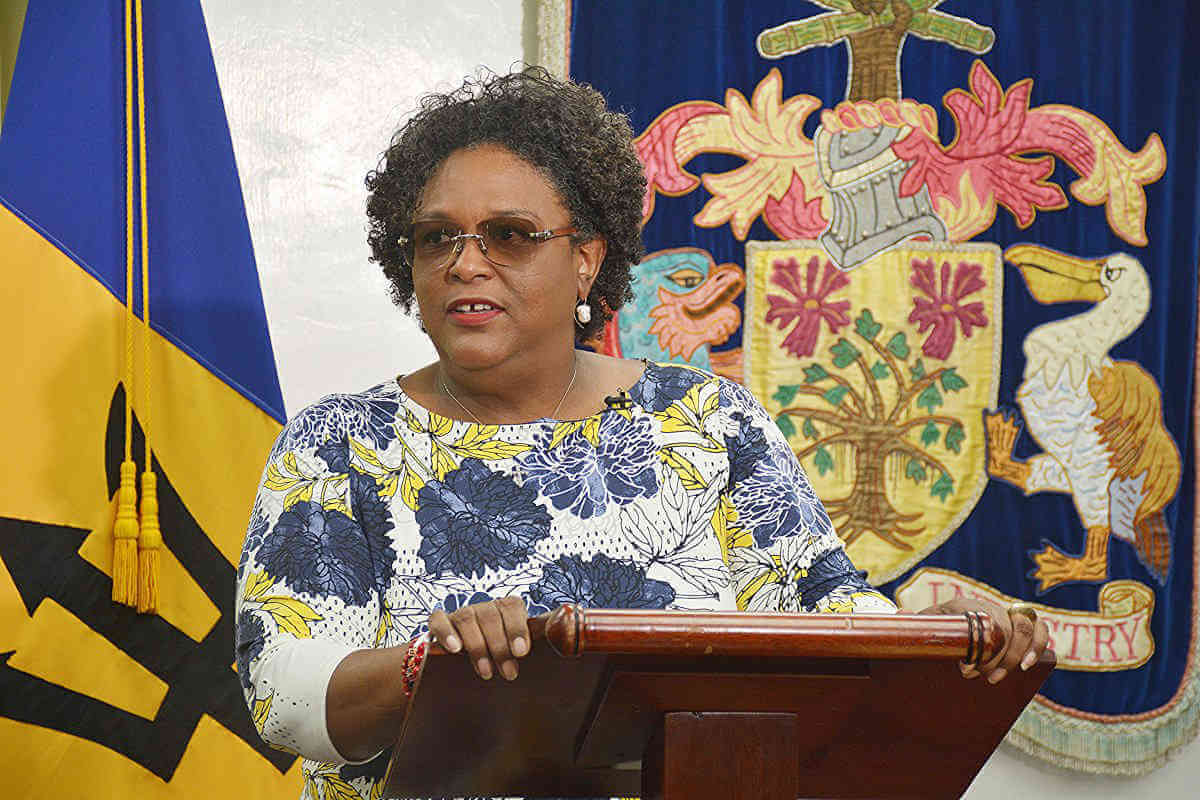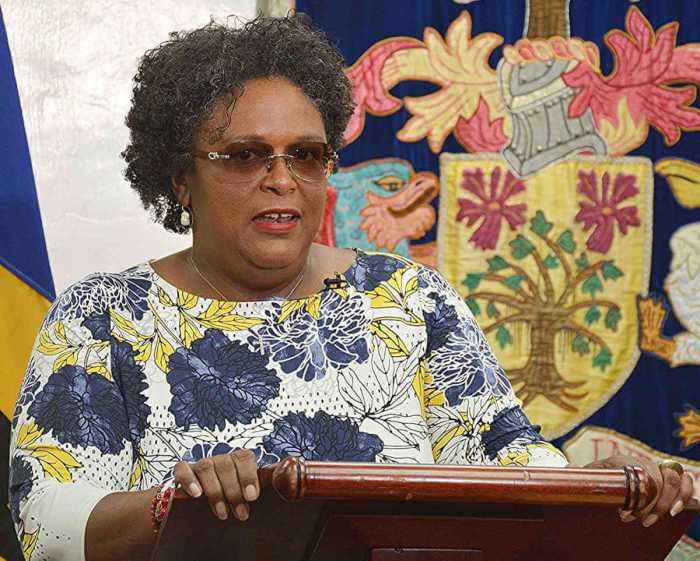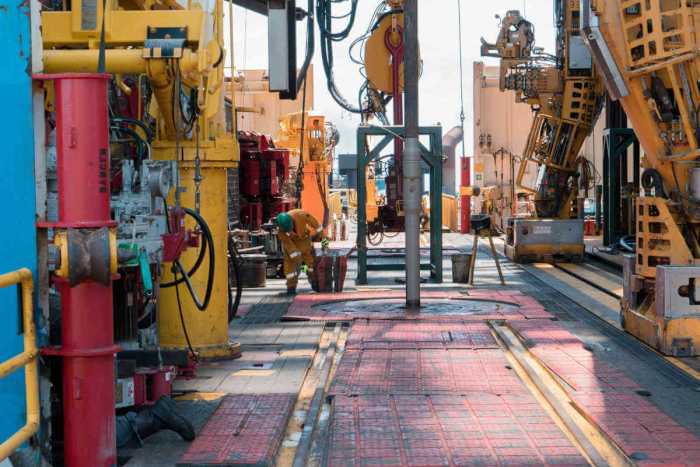Early indications that the new Barbados government is inspiring confidence in the international community are an International Monetary Fund undertaking to grant the island concessionary loans, and a hemispheric bank’s commitment to chip in also.
These positive signs emerged over the past few days despite the administration having suspended payments on the country’s mountain of foreign debt, repayment of which threatened wipe out its international currency reserves and leave it still owing hundreds of millions.
An upbeat Prime Minister Mia Mottley last weekend returned from a Washington meeting with IMF Managing Director, Christine Lagarde, and spoke of the imminent loan from that organisation at a one percent interest rate to help Barbados begin meeting its debt obligations and start redevelopment projects.
An IMF team is due in Barbados from July 2 to 12 to negotiate the loan.
Though Mottley did not state the amount of money expected from the Fund, the one percent interest credit rate is a remarkable achievement itself when taken against the backdrop of Barbados over the past 10 years suffering some 22 international credit rating downgrades, which had caused lenders worldwide shy away doing business with the island, unless high interest repayment could be attached to any loans granted.
An example, a US$225 loan that the past government had to accept from Credit Suisse AG Cayman Islands in 2013 at an interest rate ranging between 7.5 and 8.5 percent.
Mottley said that among the reasons for the positive outcome of her talks with the IMF last week is a recognition “there are things that the Barbados government must do because we have strongly fought for it and argued that this must be the basis upon which we move forward if we are to keep out country together.”
The new Barbados prime minister’s confidence was backed by none other than the IMF head, Lagarde. who tweeted, “it was a pleasure to meet Prime Minister @miaamormottley today. I reiterated our support for Barbados and its economic reform plan, which aims to put the economy on a sustainable path while protecting the poor.”
Mottley reported to the nation, “we were able to discuss with her (Lagarde) and her team the framework that we put on the table. And we made it very clear that we had mission-critical issues that we have to deal with, that we inherited a government with infrastructure that was largely broken. Busses that Barbadians couldn’t get. Garbage trucks that are not functioning. A sewerage system that is affecting the south coast”.
But even before the IMF team touches down in Barbados for the concessionary loan negotiations, a delegation from the Inter-American Bank arrived in Barbados for talks Wednesday.
That hemispheric development finance institution’s team is led by its President Luis Alberto Moreno, who had since the week pledged to the prime minister his bank’s willingness to work with the Mottley government in righting its economy.
Motley said that Moreno had expressed a willingness to stand ‘shoulder to shoulder’ with Barbados during these difficult economic times, and the IDB recognised that though making difficult decisions, Barbados, “doing the right thing in acting in this manner.”
“They know, as we do, that once we settle this arrangement, it unlocks hundreds of millions of development capital for us to fix our broken infrastructure and… to create the platform for greater competitiveness,” Mottley said.
Out of a spending budget that hovers around Bds$4.8 (Bds$1 = 50 cents US) annually, Bds$1.8 billion was going to debt obligations until this new administration froze those repayments, while seeking better financial circumstances.
The expected IMF and IDB approval of the administration’s recovery plan should provide a gateway to more financing ensuring all creditors are paid in more comfortable circumstances.


























